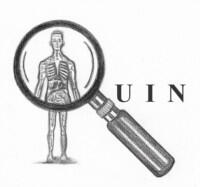Crohn's disease (CD) is a chronic inflammatory disease of the gastrointestinal tract that has a prevalence of over 800,000 in the US alone, primarily affecting young individuals. The disease's characteristic periods of remission and relapse necessitate frequent hospitalizations. There has been a recent shift in clinical practice from a reactive to a proactive CD treatment strategy, recently coined as “treat-to-target”, where patients are treated to achieve not only an initial response-to-therapy, but also longer clinical remissions and improved mucosal healing. However, this approach requires the regular assessment of disease activity using objective markers enabling treatments to be tailored to the individual patient. Therefore, there is an unmet need for new tools to improve diagnostic accuracy, to quantify disease burden, and to monitor treatment efficacy.
This project is aimed at developing and evaluating noninvasive, contrast and radiation-free quantitative imaging markers for assessing disease activity and for monitoring response to therapy. Currently available non-contrast MR imaging (MRI) sequences such as diffusion-weighted MRI (DW-MRI) and the calculated apparent diffusion coefficient (ADC) maps are promising but limited in providing robust and reproducible markers. Different imaging protocols or different scanners result in different ADC values.
Our primary goal is to develop robust and reliable quantitative DW-MR imaging markers for the non-contrast and non-invasive assessment of CD. The proposed novel MRI acquisition and model fitting techniques will provide measurements of slow and fast diffusion as well as fraction of fast diffusion, as highly accurate, quantitative biomarkers for cell proliferation, density and size, and tissue perfusion—all indices that characterize the extent of disease activity (i.e., inflammation) in the tissue micro-structure of the bowel.
